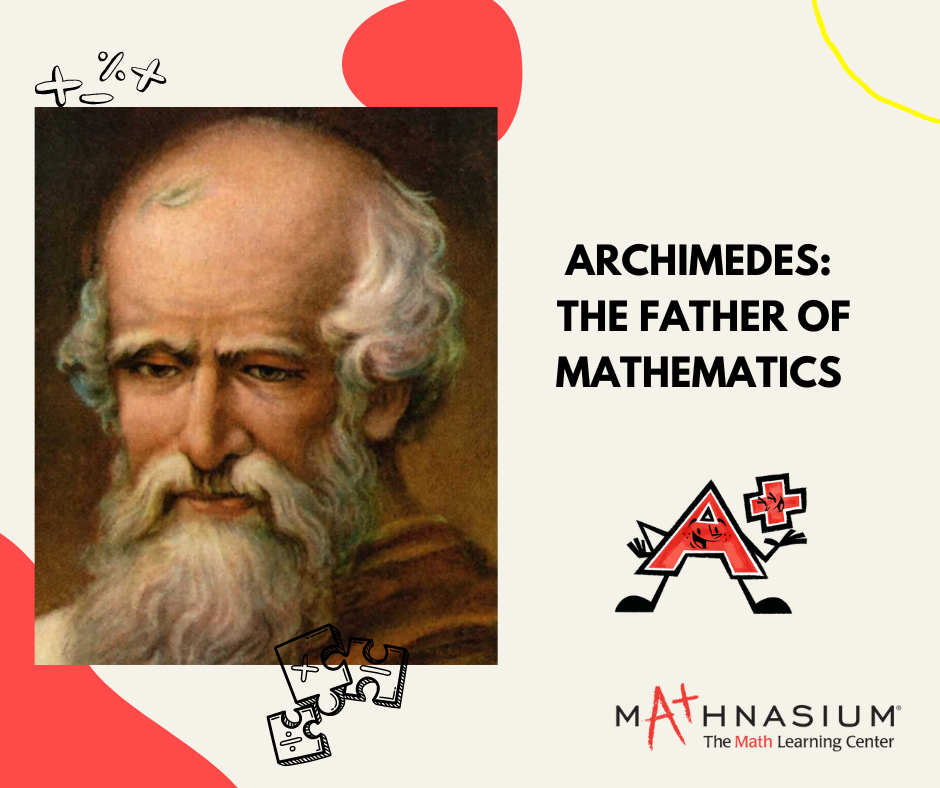Archimedes is widely regarded as one of the greatest mathematicians in history, earning him the title of the "Father of Mathematics." Born in Syracuse, Sicily, in 287 BC, Archimedes was a polymath who made significant contributions to a wide range of fields, including mathematics, physics, engineering, and astronomy. Despite living more than two millennia ago, Archimedes' work continues to influence and inspire modern scientists and mathematicians.
Archimedes' Early Life and Education
Archimedes' father, Phidias, was an astronomer who was well-respected in the community. Archimedes was likely exposed to mathematics and other scientific disciplines at an early age, and his family's connections in the scientific community likely played a role in his education. He likely studied in Athens, Greece, where he would have been exposed to the works of some of the greatest mathematicians and scientists of his time.
Archimedes' Contributions to Mathematics
Archimedes is best known for his contributions to mathematics, which are numerous and far-reaching. Perhaps his most famous contribution is his discovery of the principle of buoyancy, which he famously illustrated while taking a bath. The principle of buoyancy states that the upward force on an object immersed in a fluid is equal to the weight of the fluid displaced by the object. This principle is the basis for understanding how ships float, and it has numerous applications in engineering and physics.
Archimedes is also credited with developing several important mathematical concepts, including the method of exhaustion, which he used to calculate the areas of irregular shapes. This method involves approximating the area of a shape by dividing it into smaller and smaller pieces until each piece is simple enough to be measured accurately. Archimedes used this method to calculate the area of a circle, which he found to be equal to the product of the circle's radius and circumference. This discovery was groundbreaking and paved the way for many future mathematical advancements.
Archimedes also developed several important mathematical theorems, including the Law of the Lever and the Law of the Buoyant Force. The Law of the Lever states that a small force applied to a lever at a large distance from the fulcrum can produce a much larger force on the other end of the lever. This principle is the basis for many modern machines, including cranes and other lifting devices. The Law of the Buoyant Force states that the buoyant force acting on an object immersed in a fluid is equal to the weight of the fluid displaced by the object. This principle is the basis for understanding how submarines and other underwater vehicles are able to float and move.
Archimedes' Contributions to Science and Engineering
In addition to his contributions to mathematics, Archimedes also made significant contributions to science and engineering. He is credited with developing the Archimedes Screw, a machine that is still used today to lift water from low-lying areas. The Archimedes Screw consists of a screw-shaped surface that is rotated within a tube, causing water to be lifted from one end of the tube to the other. This machine is still used today in irrigation systems and other applications.
Archimedes also made significant contributions to the field of optics. He is credited with developing a system of mirrors that could be used to focus the sun's rays and ignite ships at a distance. This invention, known as the "Death Ray," was likely more of a legend than a reality, but it demonstrates Archimedes' fascination with optics and his interest in applying scientific principles to practical problems.
Archimedes' Legacy
Archimedes' contributions to mathematics, science, and engineering are still felt today. His work has influenced countless scientists and mathematicians throughout history, and it continues to inspire new generations of scholars today. His discoveries and inventions have had a profound impact on fields ranging from engineering to physics to astronomy, and they have contributed to some of the greatest scientific advancements in history.
Archimedes' legacy also extends beyond his scientific contributions. He was known for his commitment to education and intellectual pursuit, and his dedication to knowledge and discovery continues to inspire people today. He was an early advocate for the scientific method, which emphasizes the importance of observation and experimentation in the pursuit of knowledge, and his insistence on empirical evidence as the foundation of scientific inquiry continues to be a guiding principle in scientific research today.
Conclusion
Archimedes' contributions to mathematics, science, and engineering have earned him a well-deserved reputation as one of the greatest minds in history. His work has influenced countless scientists and mathematicians throughout history, and it continues to inspire new generations of scholars today. From the principle of buoyancy to the method of exhaustion, Archimedes' contributions to mathematics have revolutionized the field and paved the way for countless scientific advancements. In addition to his scientific achievements, Archimedes' commitment to education and intellectual pursuit serves as an enduring inspiration to people everywhere











